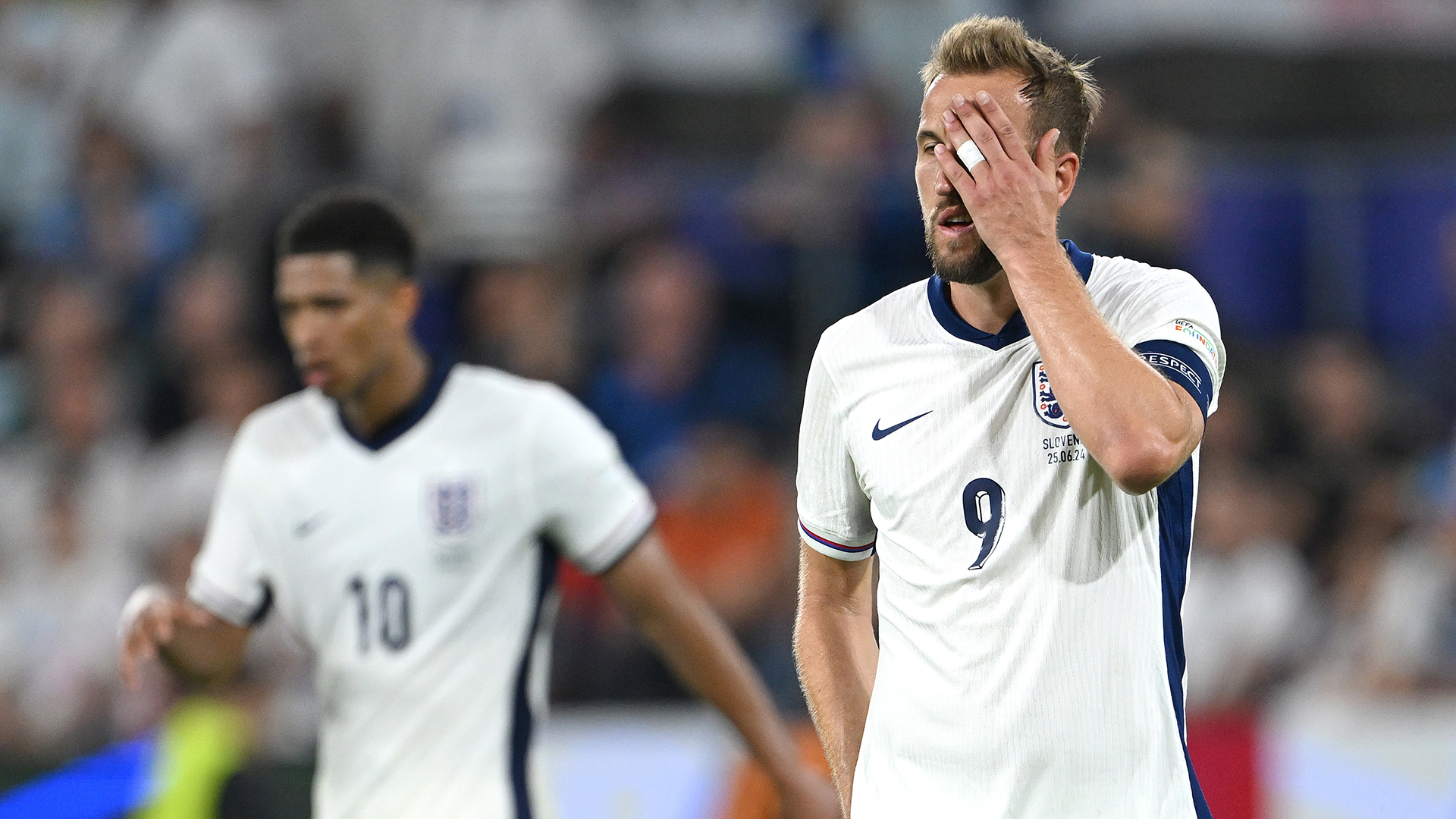As our esteemed Billy Haisley wrote on Tuesday, the group stage of a tournament like the European Championship is the best part. Thanks both to the round robin nature of groups, and the "four best third-place teams advance" format of this specific tourney, there have been some bangers in these opening two weeks. I've had a blast watching five of the six groups so far, and the two groups that will play their third and final matches on Wednesday still offer plenty of intrigue: Group E sees all four teams at three points, which means quite literally any of them could win the group, and any of them could finish last and miss out; Group F has a clearer hierarchy, with Portugal already set as group winners and Turkey sitting pretty in second, but both Georgia and the Czech Republic have been spicy and could take three points and a spot in the knockout round on the final matchday. Really, it's been a great tournament—except when it comes to Group C, which was a complete debacle.
I have been watching the Euros since 2004, and I also went back to look at every group stage since the tournament introduced that format in 1980, so I feel like I can say this both in terms of feelings and statistics: The 2024 Group C quartet put together what was the absolute worst group stage in the history of the Euros. There have never been fewer goals scored in a single group than C's seven goals. England won the group with two goals scored and just one win; the only team to ever win a group with just two goals scored was ... oh come on, it was England at Euro 2021. Get it together, England.
In terms of watching the matches, things didn't go much better. Thanks to England's reluctance to put together an attacking gameplan that suits its player selections, all three of the country's matches followed a similar script, even with three different scorelines. England would attempt to score, and if it did, it would settle back and try to see out the win. In the first game against Serbia, that worked. In the second, against Denmark, it didn't. In the group closer on Tuesday, against Slovenia, England failed to even score, but that didn't stop Gareth Southgate's men from still having a flaccid attack that, to their credit, did put the ball in the back of the net once; unfortunately, Phil Foden was way offside in the build-up to Bukayo Saka's tap-in, so it was called off.
¡Goooooool en fuera de juegoo! Lo echaron pa'trás 😪
— TUDN USA (@TUDNUSA) June 25, 2024
🏴 Inglaterra 0-0 Eslovenia 🇸🇮
🔴 EN VIVO: https://t.co/AJt1B4rlVH
📺 @ViX#EuroEnVIX pic.twitter.com/FMwHeCtlkc
While one can blame England for three of the group's six bad matches, the results and experience of the other three didn't do much to help. Denmark and Slovenia did play a fun opener, in which Christian Eriksen's comeback goal was nullified by Slovenia's Erik Janza. Slovenia and Serbia on matchday two was also a 1-1 draw, but the lack of a team with fluid midfield play, like Denmark's is at its best, made for a janky game. Denmark then played Serbia opposite of the England–Slovenia snoozer, and while the Danes did put in some chances, it amounted to little. Perhaps they realized that a draw would be enough to advance, or perhaps this group was just cursed, but whatever the reason, two 0-0 matches when all four teams were still technically alive leaves much to be desired.
Hell, just to add one little bit of stupidity, even the final standings in Group C came down to some nonsense. At a certain point on Tuesday, with Slovenia and Denmark tied at three points on the live table, the tiebreaker between them was not even something that happened at this tournament. Rather, Denmark would have finished second because it had a higher qualifying ranking coming into the Euros, which is dumb enough before one realizes that Denmark and Slovenia were in the same qualifying group and finished with the same points in that group. Denmark only won that group because of superior head-to-head results; what a silly way to decide anything. Luckily, I suppose, by the end of Tuesday's matches, Slovenia had picked up one extra yellow card, and so finished third by virtue of having a worse disciplinary record. (Slovenia might not hate that too much, as Denmark now has to face Germany in the round of 16, while Slovenia could luck into the Group E winner, a much easier task no matter who it is.)
It was all just so frustrating to watch, because there is real talent in this group, or at least enough to make it watchable. England was always a risk to under-perform here, but Denmark has good players, Slovenia could count on Jan Oblak's performance in goal, and Serbia's front three should have really come up with more than one total goal. That it all broke the way it did is only disappointing because of the potential. The beloved (by us here at Defector anyway) third-place format might have even hurt the excitement on the final day, as both Denmark and Slovenia could be pretty confident that a draw would send them through; the latter especially was content to just not lose to England, and celebrated accordingly.
I'm not sure there's anything to take from Group C on a macro scale, though; it might just be the exception to the thrills in other groups that makes those thrills so worth it. As for where the three advancing teams go from here, man, I don't care. England will likely face the Netherlands in the round of 16, and the Netherlands featured in the best match of the tournament earlier on Tuesday, with some help from Austria, who won that one 3-2 (and somehow won its group, thanks to France's 1-1 draw to Poland). I find it hard to not root for the Oranje to knock out England and put everyone out of our collective misery of watching Phil Foden drift inside to do nothing at all for more than one more match, or to watch Harry Kane and Jude Bellingham occupy the exact same space for 90 minutes. Denmark and Slovenia will both be underdogs in their next matches, and if they both go out there, I won't shed any tears.
Group C wasn't expected to deliver a rip-roaring good time, but I have never been more excited that a group will not play any more games against each other. This was indeed the Group of Death, but from the perspective of the spectators rather than the teams themselves. I'm glad that the Euros-watching public can move on and forget it ever happened.






